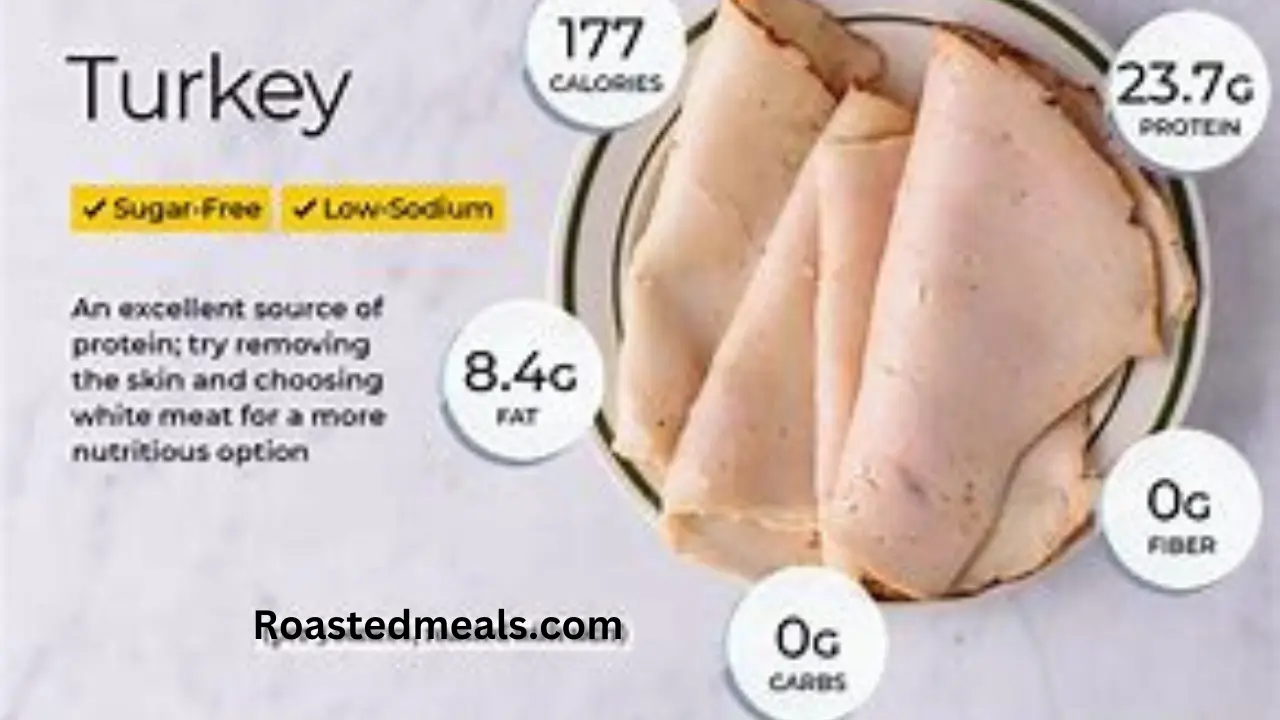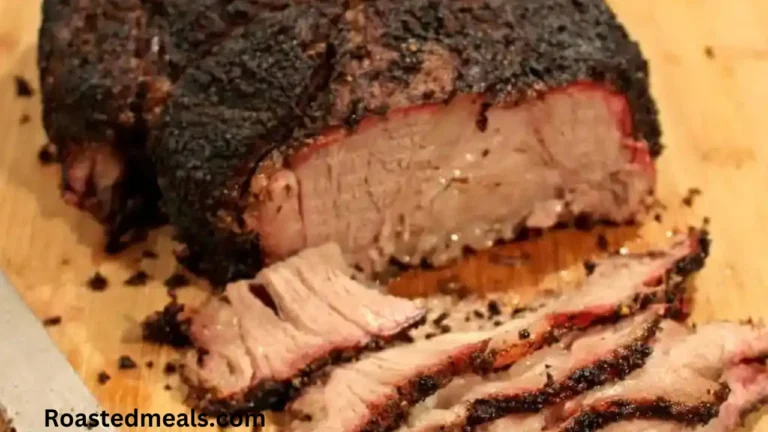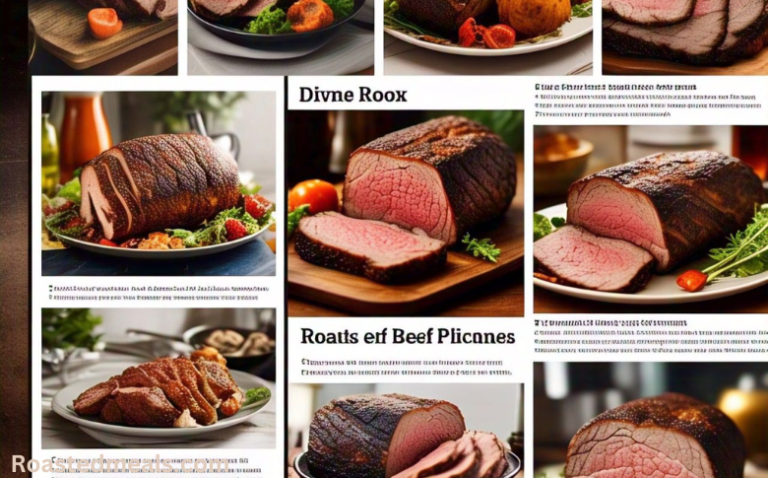The important Calories in oven roasted turkey deli meat 2024
Discover the calorie content of oven roasted turkey deli meat for healthier sandwich choices. When it comes to watching what we eat knowing the calorie content of our food is important. If you’re someone who enjoys a delicious sandwich with oven roasted turkey deli meat you might be curious about its calorie count. Let us explore how many calories are packed into this tasty deli option.
Understanding Calories
Before we dive into the specifics of oven roasted turkey deli meat, it’s helpful to understand what calories are. Calories are units of energy found in food and drinks. When we eat and drink, we take in calories, which our bodies use for everything from breathing to running and even sleeping. However, consuming more calories than our bodies need can lead to weight gain.

Are Oven Roasted Turkey Deli Meat
Oven roasted turkey deli meat is a popular choice for sandwiches and snacks. It’s made from turkey breast that has been seasoned and cooked in an oven. The result is a flavorful, thinly sliced meat that’s perfect for layering between slices of bread or adding to salads.
- SQM DELI ROAST TURKEY BREAST- Our real roasted turkey breast hardly needs a description. Possibly our most popular product- we debone whole turkey breasts from our pasture-raised birds, brine for 24 hours and then slow roast in the oven. The result is the most amazing, moist flavorful turkey breast meat you have ever had! PLUS- there’s no weird ingredients. Just turkey and a little salt and pepper.
We offer “deli sliced” packages as well as whole muscle pieces. Each package is vacuum sealed. The larger pieces are great to cut into thicker pieces for open face turkey sandwiches or pre-cooked turkey meat for soups and salads.
Package size and weights are as follows:
SLICED “Deli Style” Package- up to .75 lbs
Medium Whole Piece (not sliced)- up to 1.5 lbs
Large Whole Piece (not sliced)- 1.5-2.5 lbs
INGREDIENTS:
Turkey, salt and pepper
Nutrition Facts
| Calories50% Daily Value*Total Fat 1g1% | Saturated Fat 0.5g3% | Trans Fat 0g | Polyunsaturated Fat | Cholesterol 20mg7%Sodium 480mg21%Total Carbohydrate 1g0% | Dietary Fiber 0g0% | Total Sugars 0g | Includes 0g added sugars | ||||||||||
Calorie Content of Oven Roasted Turkey Deli Meat
Now, let’s get to the heart of the matter: how many calories are in oven roasted turkey deli meat? On average, a 2-ounce serving of oven roasted turkey deli meat contains around 50-60 calories. This serving size is roughly equivalent to two slices of deli meat. However, it’s essential to check the nutrition label on the specific brand of turkey deli meat you’re consuming, as calorie counts can vary slightly.

Factors Affecting Calorie Content
Several factors can influence the calorie content of oven roasted turkey deli meat:
The calorie content of food can be influenced by various factors, including:
- Macronutrient composition: The three main macronutrient scarbohydrates, proteins, and fats contribute different amounts of calories per gram. Carbohydrates and proteins each provide about 4 calories per gram, while fats provide around 9 calories per gram. Therefore, foods with higher fat content generally have more calories per serving than foods with higher carbohydrate or protein content.
- Water content: Foods with higher water content generally have fewer calories per gram because water itself does not contribute calories. Fruits and vegetables, for example, tend to be low in calories due to their high water content.
- Fiber content: Fiber is a type of carbohydrate that the body cannot digest, so it does not contribute calories. Foods high in fiber, such as whole grains, fruits, and vegetables, often have fewer net calories because the body expends energy to digest fiber without absorbing any calories from it.
- Processing and cooking methods: Processing and cooking can alter the calorie content of food. For example, frying or adding high calorie sauces can significantly increase the calorie content of a dish compared to steaming or baking.
- Sugar and sweeteners: Sugars and sweeteners add calories to food. Foods and beverages with added sugars, such as soda, candy, and desserts, tend to be higher in calories compared to those without added sugars.
- Alcohol: Alcohol contains calories (about 7 calories per gram), so alcoholic beverages contribute to overall calorie intake. Cocktails and mixed drinks that contain sugary mixers or syrups can be particularly high in calories.
- Portion size: Larger portions contain more calories than smaller portions, even if the food itself is the same. Portion control is essential for managing calorie intake.
- Nutrient density: Foods that are nutrient dense provide a high amount of nutrients relative to their calorie content. Choosing nutrient dense foods such as fruits, vegetables, lean proteins, and whole grains can help maintain a balanced diet while managing calorie intake.
Understanding these factors can help individuals make informed choices about their diet and manage their calorie intake for weight management and overall health.
Fat Content
The amount of fat in the turkey meat can affect its calorie count. Leaner cuts of turkey will have fewer calories than those with higher fat content. Oven roasted turkey deli meat is often made from lean turkey breast, making it a lower-calorie option compared to other deli meats.
The fat content of food can significantly impact its calorie content. Here’s how:
- Calories per gram: Fat is a concentrated source of energy, providing about 9 calories per gram. This is more than double the calories per gram provided by carbohydrates and proteins, which each offer around 4 calories per gram. As a result, foods high in fat tend to be calorie-dense.
- Types of fat: Not all fats are created equal. There are saturated fats, unsaturated fats (including monounsaturated and polyunsaturated fats), and trans fats. Saturated and trans fats are generally considered less healthy because they can raise cholesterol levels and increase the risk of heart disease. Unsaturated fats, on the other hand, are considered healthier and can be part of a balanced diet when consumed in moderation.
- Food sources: Foods vary in their fat content based on their ingredients and preparation methods. For example, fatty cuts of meat, full-fat dairy products, oils, and butter tend to be higher in fat and thus higher in calories compared to lean meats, low-fat dairy products, and fat-free cooking methods.
- Processing: Processed and packaged foods often contain added fats for flavor, texture, and preservation. These added fats can significantly increase the calorie content of the food. Additionally, processing can alter the type of fat present in food, with some processing methods converting healthy unsaturated fats into less healthy trans fats.
- Portion size: Even healthy fats should be consumed in moderation because of their high calorie density. Eating large portions of foods high in fat can quickly lead to consuming more calories than needed, which can contribute to weight gain and other health issues.
Understanding the fat content of food is essential for making informed dietary choices and managing calorie intake for overall health and wellness.
Seasonings and Additives
Some brands of oven roasted turkey deli meat may contain added seasonings, flavorings, or preservatives, which can impact the calorie content. Opting for plain, minimally processed turkey deli meat can help keep the calorie count lower.
Serving Size
The serving size of oven roasted turkey deli meat will also determine its calorie content. Be mindful of portion sizes when building your sandwich or snack to avoid consuming more calories than intended.
Incorporating Oven Roasted Turkey Deli Meat Into Your Diet
Oven roasted turkey deli meat can be a nutritious addition to your diet when enjoyed in moderation. Here are some ideas for incorporating it into your meals:

Sandwiches
Layer slices of oven roasted turkey deli meat between whole grain bread or wraps for a satisfying and portable meal. Add lettuce, tomato, and other veggies for extra flavor and nutrition.
Salads
Slice oven roasted turkey deli meat into strips and toss it with mixed greens vegetables and your favorite dressing for a protein-packed salad.
Wraps and Roll-Ups
Wrap oven roasted turkey deli meat around cheese sticks cucumber slices or avocado for a quick and easy snack or lunch option.
Frequently Asked Questions
How many calories are in a slice of deli oven roasted turkey?
And you don’t have to sacrifice health for taste with 50 calories and 10 grams of protein per serving of oven roasted turkey breast.
Is oven roasted turkey deli meat healthy?
But while turkey is among the leanest deli meats in the big picture it may not be healthier than other types. That’s because all cold cuts are processed meats, like bacon and hot dogs. Regularly eating them even in amounts less than what you probably put in a sandwich clearly increases the risk of cancer.
How many calories are in 2 eggs?
An average serving size of two eggs contains only 148 calories or 620 kilojoules – roughly the same as two apples.
Is deli turkey good for fat loss?
If your goal is to reduce the amount of fat in your diet, some deli meats are better than others. Deli meats made from ground poultry such as chicken and turkey typically contain lower amounts of saturated fat than other deli meats.
How much eggs is 500 calories?
One large egg contains about 74 calories. A meal consisting of 3 boiled eggs, vegetables and sliced avocado can contain under 500 calories.
What exercise burns 500 calories?
An hour of an intense match on the volleyball court chasing that basketball or playing soccer can easily burn 480 to 500 calories in an hour. Riding a bike: Daily rides for an hour work out the thigh and calf muscles and help with heart health.
Conclusion
Knowing the calorie content of oven roasted turkey deli meat can help you make informed choices about your diet. By understanding the factors that influence calorie count and incorporating turkey deli meat into balanced meals and snacks, you can enjoy this tasty option while maintaining a healthy lifestyle. Remember to always check nutrition labels and be mindful of portion sizes to stay on track with your health goals. click here to more info






